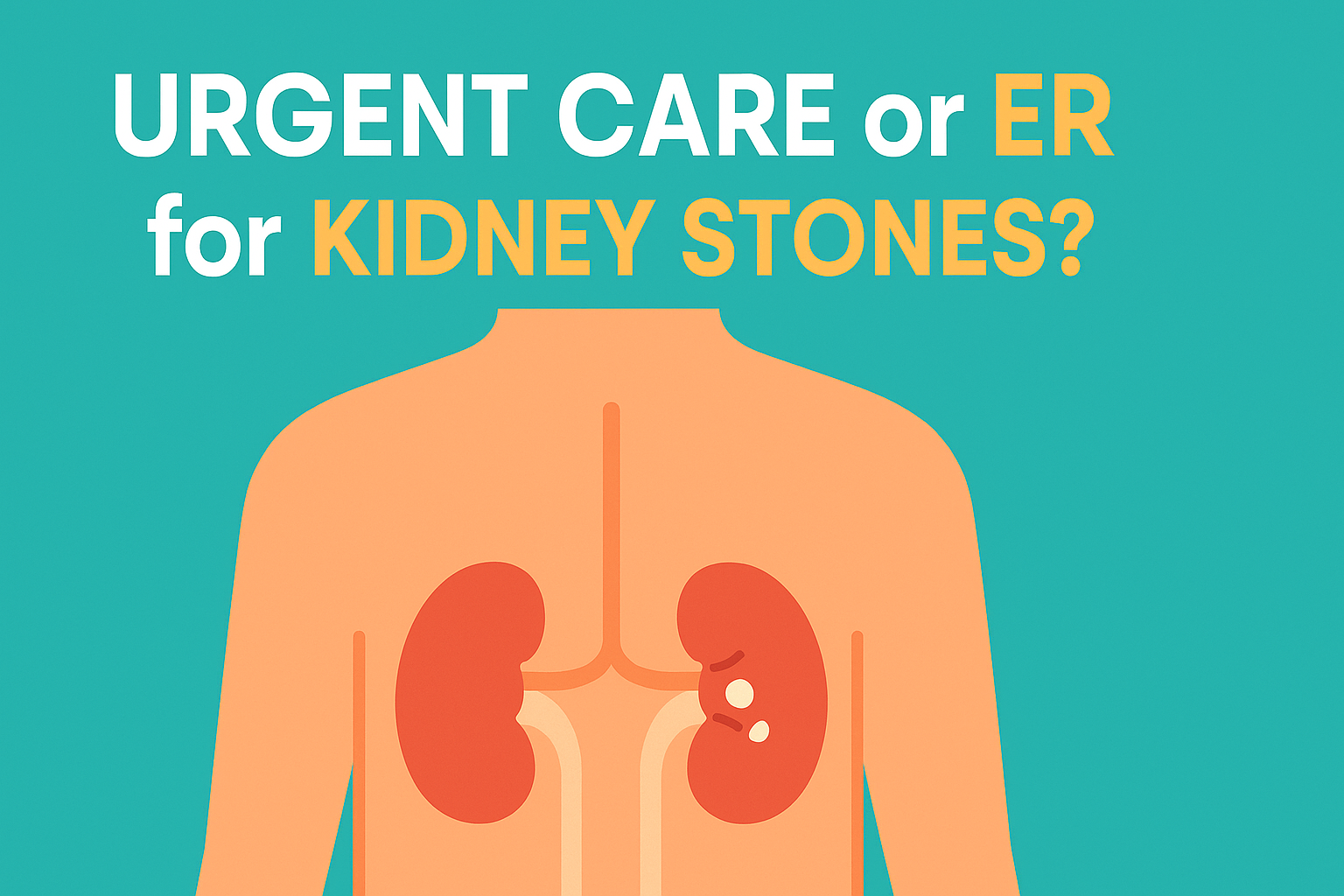Choosing Between Urgent Care and the Emergency Room for Kidney Stones
When dealing with kidney stones, it is important to choose the right place for treatment based on your symptoms.
When to Go to the Emergency Room
You should go to the emergency room right away if you experience:
- Severe pain that over-the-counter medications can’t relieve
- A fever over 101.5 degrees Fahrenheit
- Chills
- Nausea or vomiting that prevents you from drinking fluids
- Blood in your urine
Intense abdominal pain, fever, and sudden changes in urination may mean that the stone is blocking your urinary tract or causing an infection.
When to Visit Urgent Care
For mild to moderate pain, difficulty urinating, or general discomfort, urgent care can help. They offer:
- Quicker service
- Lower costs than the ER
However, they might send you to the hospital if complications arise.
Kidney Stone Emergencies: Current Medical Guidelines
Current medical guidelines for kidney stone emergencies focus on quick assessment, pain relief, and proper imaging.
Initial Assessment
The first step includes:
- A physical exam
- Blood tests
- Imaging to find the size and location of the stone
Patients usually get X-rays and CT scans of the abdomen and pelvis.
Pain Relief
Pain relief starts right away. Nonsteroidal anti-inflammatory drugs (NSAIDs), such as:
- Diclofenac
- Indomethacin
- Ibuprofen
These are effective for acute pain. Non-contrast spiral CT has replaced traditional X-rays and ultrasounds because it better detects stones.
When to Seek Emergency Help
Emergency help is needed when stones cause:
- Complete urinary blockage
- Severe infection
- Intense pain
- Kidney function issues
This situation requires immediate urological consultation and possible surgery.
Follow-Up Care
After initial treatment, patients may continue pain medication. They should also undergo imaging within 14 days to check for:
- Stone progression
- Complications, such as hydronephrosis
Urgent treatment is crucial for complete urinary obstruction to avoid permanent kidney damage.
Understanding Emergency Room Costs for Kidney Stone Treatment
Emergency room costs for kidney stone treatment can vary widely. Here’s what you need to know:
Basic Care Costs
- The median charge for basic care is about $3,437.
- Costs can range from $128 to $39,408, depending on:
- The hospital
- The treatment needed
Costs of a Simple Visit
A simple visit can cost nearly $12,000 for under four hours of care.
Costs for Uninsured Individuals
For uninsured individuals, the costs can be significant:
- Surgical removal of kidney stones can range from $3,304 to $12,525.
- Complications can raise costs to nearly $30,000 for unexpected follow-up visits.
Insurance Coverage
Insurance usually covers kidney stone treatment, but patients might face additional costs:
- Copays and coinsurance can range from 10% to 50%.
- Hospital fees can be $100 or more, potentially reaching the yearly out-of-pocket maximum based on the complexity of care.
By understanding these costs, patients can better prepare for treatment and manage their finances.
Hospital Stay for Kidney Stones
The length of a hospital stay for kidney stones varies widely. It depends on the treatment needed and the complexity of your case.
Minor Procedures
For minor procedures like shock wave lithotripsy:
- You usually stay for about an hour.
- If all goes well, you can go home the same day.
- This makes it an outpatient procedure.
More Involved Treatments
For more involved treatments like ureteroscopy or percutaneous nephrolithotomy:
- Patients must stay overnight at the hospital.
- This is required for observation after the procedure.
- More complex cases may need several days for recovery.
- Some patients may stay for a few hours or up to two days, depending on the surgery type.
Factors Affecting Stay Duration
The duration of the stay depends on factors like:
- The stone’s size
- The stone’s location
- Surgical complexity
- Your recovery progress
If there are complications, that may also affect your stay.
Most patients return to normal activities within 1-2 weeks after surgery. However, uncomplicated cases usually have a brief hospital stay.

